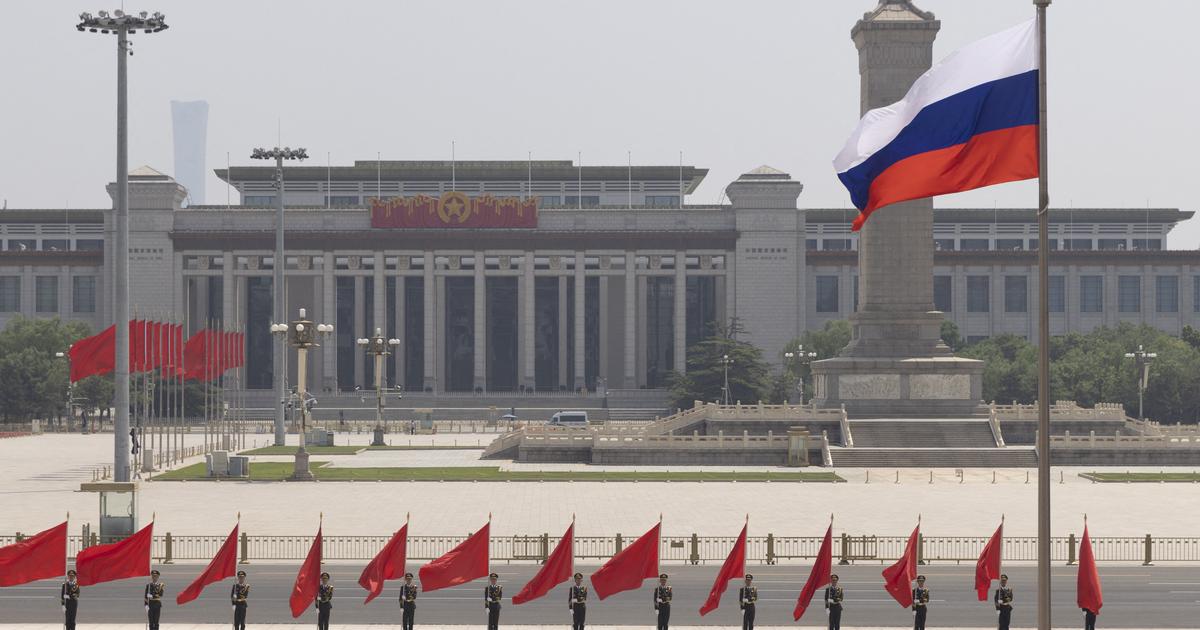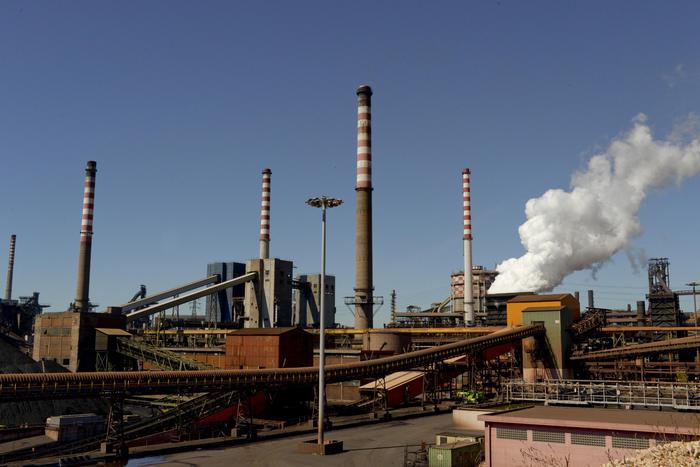Politics
Written by: Lin Jian
2020-02-13 07:00
Last updated: 2020-02-13 07:00The pneumonia epidemic in Wuhan spread locally. During a family gathering of 19 people on January 26, participants fired sideburners and grilled meat in a partyroom (party room) of an industrial building in Kwun Tong. Group outbreaks were suspected. So far at least 9 Participant diagnosis was the largest single outbreak for the time being. Seeing this, readers may have a question in their hearts: Does the provision of hot pot and barbecue services in industrial buildings comply with sanitary standards? Is it illegal? Some media also reported that the venues involved had no business registration records and restaurant operating licenses and were suspected of operating illegally.
The SAR Government started the revitalization of industrial buildings ten years ago. The director of the Development Bureau, who was initially responsible for the matter, is the current Chief Executive Lin Zhengyue. However, due to practical implementation issues, such as economic incentives, the general response after the policy was introduced. After the vacancy of the industrial building, it is already common for landlords and tenants to change their uses. Promoting activation will actually increase rents. Therefore, the implementation of the policy has been ineffective, and the "half tail" has been called off.
The current government restarted the revitalization of industrial buildings last year and made some improvement measures, but the solution was not possible at one and three moments, and the time has been delayed by nearly ten years. As a result, industrial restaurants of industrial buildings of this type that "take the law" continue to have living space. Even if the government knows that there are illegal venues, these economic activities have existed for a long time, and the situation is endless, let alone include regulation. Even if the safety and health hazards are buried, citizens can only "seek more for themselves."
▼ Suspicious outbreak of Kangmei Building in Changkang Village ▼
+14
+13
+12
Lin Zheng in 2009: "Fast, accurate, and cruel" policy is expected to benefit 1,100 industrial buildings
After the industrial decline in Hong Kong, the community is concerned about how to make good use of these vacant industrial facilities. After these industrial buildings ceased to carry out industrial activities, other industries began to settle in for non-industrial uses, some of which were against the rules, because the owners may not apply to the Lands Department for conversion, or the building's fire safety hardware is not suitable for certain activities. However, since such "legal-minded" industrial building units often have cheap rents, there is room for survival.
In October 2009, then Chief Executive Tsang Yam-kuen announced in his policy address that a series of measures had been introduced to unlock the potential of over 1,000 old industrial buildings, allowing owners of old industrial buildings of more than 15 years to exempt workers from exemption fees as long as they obtained planning permission. The renovation of the building is activated; if the whole building is rebuilt, the owner only has to pay the land premium according to the actual development density after the reconstruction, and the policy will take effect on April 1, 2010. The government has subsequently lowered the threshold for applying for a compulsory sale order for industrial buildings located in non-industrial areas with a building age of 30 years or more from 90% to 80%.
The then Secretary for Development, Mrs Carrie Lam, stated at a press conference on October 15 that the policy is expected to unlock the development potential of 1,100 industrial buildings, and that there are nearly 1,500 industrial buildings in Hong Kong, accounting for more than 70% of the total. Lin Zheng also described the policy as "fast, accurate, and cruel": there are few laws that are easy to implement and involve changes, are targeted, and the exemption is waived comprehensively.
The current Chief Executive, Lin Zhengyue, is the director who was originally responsible for revitalizing industrial buildings. (Profile picture / Photo by Yu Junliang)
Difficulty in policy implementation and insufficient economic incentives
The original policy intent is to make the best use of it theoretically. In conjunction with the six advantageous industries (culture and creative industries, education, private medical care, testing and certification, environmental protection industry, and innovative technology industries) advocated by the government at that time, it will provide more venues for the industry, and Existing activities were standardized at that time; some industrial buildings could be turned into hotels. Improving the appearance of industrial buildings after activation can also promote the development of urban metabolism.
However, in practice, there are quite a few loopholes in the policy. One was that many young entrepreneurs were engaged in cultural creativity or other economic activities in the industrial buildings at that time. After the government announced the policy of revitalizing industrial buildings, due to business opportunities, the prices and rents of industrial buildings rose immediately, but forced the industry to leave. In implementation, the activation application must also be submitted by all owners of the building, and the difficulty is not low.
Another major issue is the application of incentives. Although Lin Zhengyue initially stated that the policy involves not many amendments to the law, there are quite a number of technical issues to be dealt with simply changing the uses marked in the deeds of industrial buildings. For example, the conversion to a restaurant must comply with the "Food Industry" The Regulations require ventilation systems to be converted into commercial buildings and comply with fire protection standards, which may involve large-scale modification of owners and always require costs.
In addition, when the policy was implemented, the plot ratio was more restrictive. After the building is modified, the height, volume or total floor area of the building must not be increased. Only small-scale changes to the existing structure are allowed, which may affect the owners' future commercial income. Rebuilding is even more troublesome. Owners often need to negotiate and evaluate with the Lands Department, which involves administrative costs.
The Lento Party Room is located in the Yongxing Industrial Building in Kwun Tong. After a family of 19 people rented a room to fire a side stove, many of them were diagnosed with Wuhan pneumonia. (Photo by Lin Zhenhua)
2019 results table: 136 approved cases
In short, the final result is that the response after the launch of the activation policy was not enthusiastic. As of the end of March 2019, the government received 226 applications for activation, and only 136 cases have been approved and executed. No matter from which perspective, it is better than Lin Zheng The 1,100 targets set for 2009 are very different. At the same time, in 2010 and 2016, the price and rent index of private stratified industrial buildings increased by an average of 16% and 8.9%, respectively, with extremely significant increases. At the end of March 2016, the government did not continue after the policy expired and ended in disguise.
Therefore, the owner or renter would rather continue to "take the law" to use the industrial building for other commercial purposes, and even for residential purposes. No matter how the government department enforces and bans illegal industrial buildings, due to the high rents of regular commercial buildings, the economic activities in such industrial buildings have already taken shape, and there is always room for survival. For example, the cafeteria of the industrial buildings we often see today will be posted with a notice that "only the factory employees in this industrial building can use it", but the operators generally do not strictly enforce it to attract more diners, because diners have more Restaurant selection, do not care about the relevant regulations.
A group of 19 people from the confirmed family had a family gathering at the Party Room Lento Party Room in Kwun Tong last month. (Photo of Lento Party Room IG)
After the policy was suspended, it was "dead and reborn"
However, the economic activities in such old industrial buildings always exist objectively. Fire safety and sanitation are basically subject to the self-discipline of the operators. On August 12, 2017, a fire broke out at Mei Sik Industrial Building in Kwai Chung, killing three people. Afterwards, the Buildings Department found that the fire unit was stolen, and some alterations did not meet the escape route and fire safety standards. After 3 days, during the period when he became the chief executive, Lin Zhengjian told reporters that he had instructed several departments to follow up the violations of industrial buildings and asked the Development Bureau to re-examine policies such as revitalizing industrial buildings.
In 2018, the government launched the Industrial Building Activation Policy 2.0, which will be implemented in April 2019. The policy makes certain degrees of grace, allowing industrial building reconstruction projects completed before 1987 to relax the maximum approved non-domestic plot ratio, with a maximum of 20%; subject to the use permitted under the planning system, industrial buildings are allowed Some designated cultural and artistic circles, creative industries and innovation and technology circles use without the need to apply for a separate lease deed; in addition, the new policy allows the revitalization of industrial buildings to provide transitional housing.
In general, the new industrial building revitalization policy has more economic incentives than before, and its specific effects remain to be seen. However, the problem is that it has been ten years since the government first proposed this policy to the formal implementation of the "improved version" last year. Even the chief director has changed to the chief executive. During this period, the policy has been repeated repeatedly. Human casualties have resumed, and it has taken a lot of precious time. Although it is difficult for us to directly link this with infectious diseases, but since the government cannot come up with effective policies and incorporate the existing economic activities in these industrial buildings into the formal regulatory scope, we can only let the operators operate on their own, health loopholes, The chances of security risks are certainly higher.
[Wuhan Pneumonia] Colleagues from Beijing House of Dabianlu Family have confirmed that the authorities worry that local transmission is difficult to find.
[Wuhan pneumonia] 7 cases a day increased by a female colleague in the sideburner family, and 3 people related to Kangmeilou were diagnosed
[Wuhan Pneumonia] Preliminary diagnosis of a colleague from a second aunt MOKO Beijing House patient
[Wuhan pneumonia] 9 people diagnosed at the sideburner party, 24 years old, go to work
Zheng Yue'e, Wuhan Pneumonia Activation Industrial Building



/cloudfront-eu-central-1.images.arcpublishing.com/prisa/HRUGK2FLL42KSGVSW7PYWO623A.jpg)





